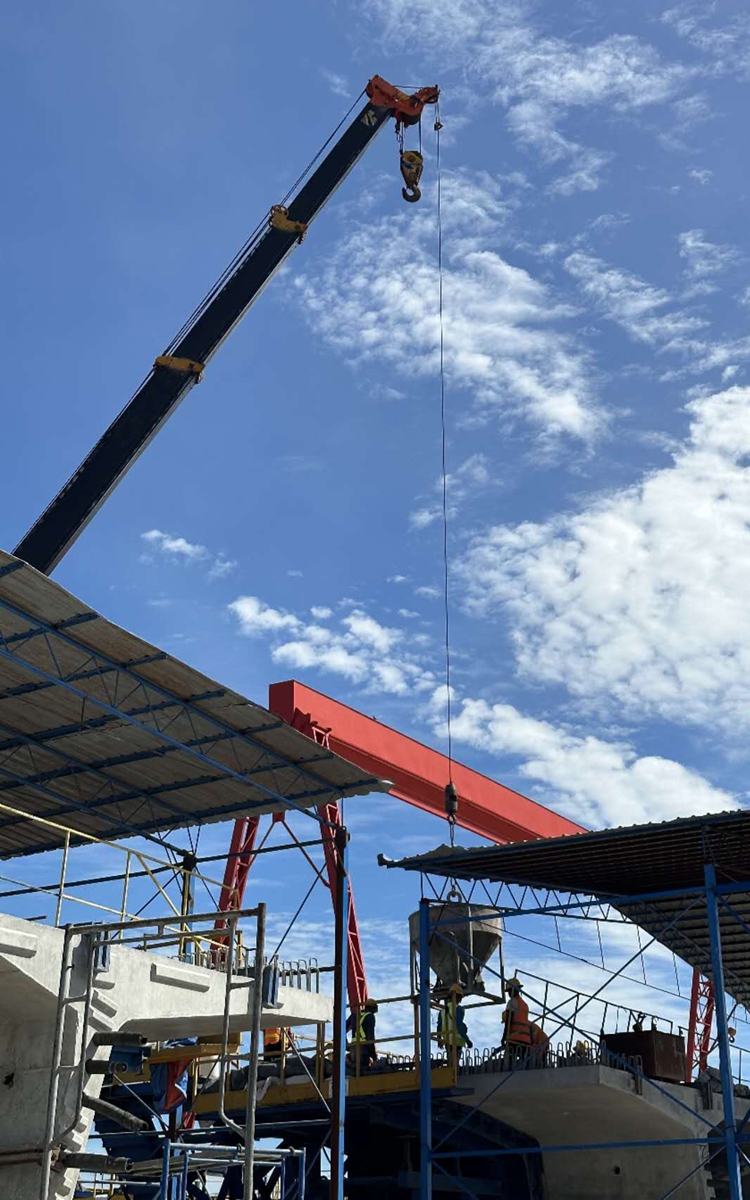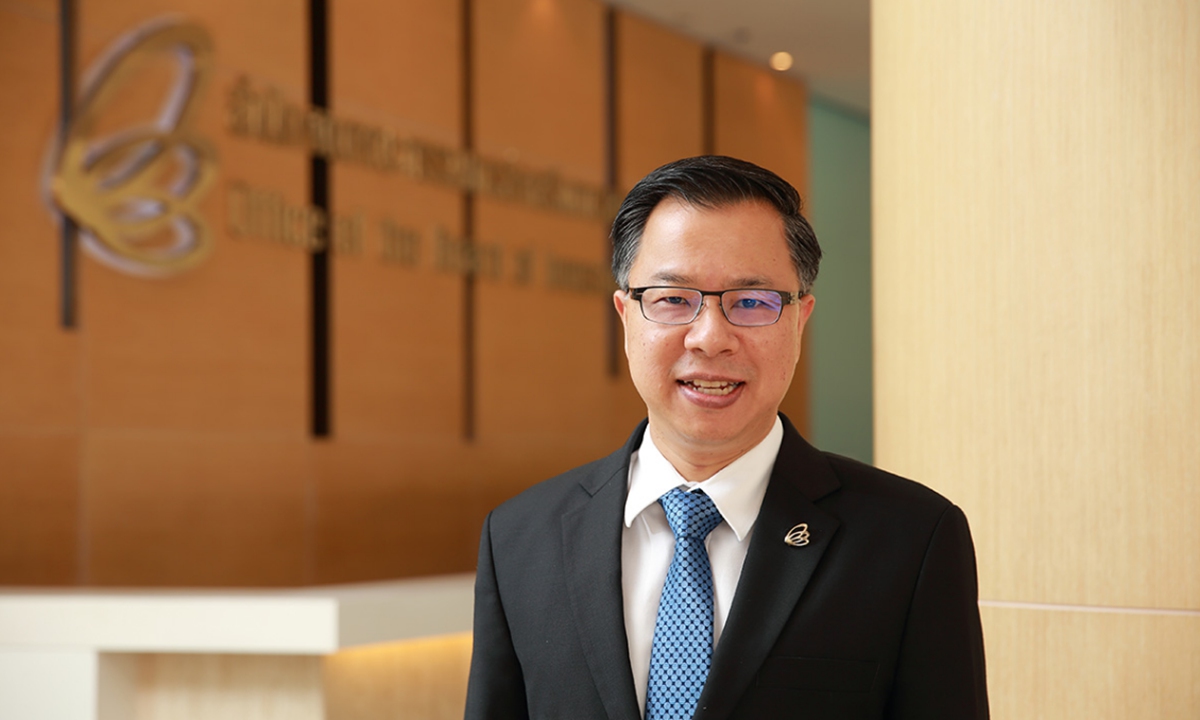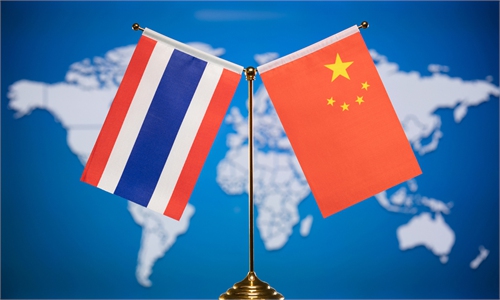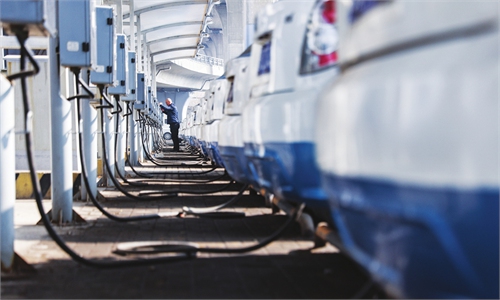Thailand to remain open to Chinese investors, build resilient supply chain: official

The construction site of the China-Thailand High-speed Railway is seen in Bangkok in July 2023. Photo: He Zhuoqian/GT
Editor's Note:
This year marks the 10th anniversary of the China-proposed Belt and Road Initiative (BRI), a global cooperation platform that demonstrates China's vision for development and offers solutions for the reform of the global governance system and multi-faceted challenges. Against this backdrop, the Global Times is publishing a series of interviews with renowned scholars, think tank experts and analysts at financial institutions, sharing their insights and understanding of how this initiative has earned global recognition and growing esteem. This is the 10th installment in the series.
Recently, Global Times reporter Li Xuanmin (GT) conducted an interview with Narit Therdsteerasukdi (Narit), secretary general of the Thailand Board of Investment (BOI), a Thai government agency that specializes in investment promotion. The interview focused on the BRI and how ASEAN economies have been benefiting from the initiative. According to him, the additional connectivity brought by the BRI has reinforced trade, economic and investment cooperation between China and ASEAN. It is expected that China and Thailand could deepen cooperation in such sectors as new-energy vehicles and electronics under the initiative.
GT: This year marks the 10th anniversary of the BRI. In your opinion, what opportunities has the BRI brought to the development of Thailand and other ASEAN economies, especially in infrastructure connectivity?
Narit: For Thailand, connectivity is an essential issue. With our strategic location at the heart of ASEAN, and our experience as a regional hub for business and investment, as well as a major travel destination, we know how important it is for people and goods to move easily.
At the Thailand Board of Investment, we know well that connectivity and great infrastructure are key factors for investors considering plans to invest in Thailand.
The additional connectivity and infrastructure development resulting from the BRI are meaningfully reinforcing the longstanding trade, economic and investment cooperation between China and ASEAN, and among ASEAN countries themselves. This in return helps increase our competitive advantage.
The opening of the China-Laos Railway is already demonstrating that the increased connectivity is benefitting trade and tourism among China, Laos and Thailand. The China-Thailand High-speed Railway now under construction will play an important role for Thailand, other ASEAN countries and China in promoting regional economic cooperation and co-development. This is also an important step in cooperation, allowing Chinese and Thai experts and workers to work together on large projects.
GT: What is your expectation for cooperation between China and Thailand under the BRI framework in the next decade?
Narit: I'm confident that investment and cooperation between our two countries will continue to grow and gain in importance. We hope we can see more investment and joint development of technologies that will support the economy in a sustainable manner over the long run.
GT: China and Thailand are strengthening the docking between the BRI and the Eastern Economic Corridor, whose development lies at the heart of Thailand's 4.0 industrial policy. In your opinion, how will Chinese investment contribute to the policy?
Narit: China is a major driver of economic development and has cultivated very advanced technologies in several industries, and it is an integral part of Thailand's own strategy to target higher technology investment and develop a new economy.
Investment from China into Thailand started to take off around 2015, and it has remained high despite COVID-19, with a significant portion of investment going into advanced manufacturing, and in Thailand's Eastern Economic Corridor area. China was our main source of foreign investment applications in 2022 as well as in the first six months of 2023, mostly due to investment in the electric vehicle (EV) and electronics.
This constant flow reflects Chinese investors' trust in Thailand as a strategic location in ASEAN, and as a resilient base from where they can do business with other countries.
Thailand's strengths include connectivity, strong supply chains, our workforce, the government's consistently pro-investment policies, the BOI's competitive incentives, the business-friendly environment and competitive costs.
GT: Multiple Chinese new-energy vehicle (NEV) enterprises have set up assembly lines in Thailand. In your view, what are the business prospects of the NEV industry in Thailand?
Narit: The competitive advantages of Chinese NEV manufacturers in Thailand are partly a result of their excellent technology and consistent innovation.
Because they were the first to realize the potential offered by Thailand's EV policy, they are enjoying an early-mover advantage in the Thai and regional markets.
Four Chinese carmakers are already investing in EV manufacturing in Thailand - BYD Auto, Great Wall Motor, SAIC Motor and Neta Auto. Other Chinese EV companies, including Chang'an Automobile and GAC Aion, are considering investing in Thailand as part of their international expansion plans.
The already very strong supply chains that Thailand has built in the automotive sector, and our status as a leading production and export base, have been key factors in attracting Chinese investors.
Thailand is the top automotive producer in ASEAN, and we rank in the top 10 in the world for automotive production and total auto exports.
Most importantly with regard to development of EVs, Thailand is the first country in Southeast Asia to offer special incentives to the whole supply side as well as the demand side, and to have set a clear target that stipulates at least 30 percent of the cars made in Thailand are EVs by 2030.
On the supply side, the incentives offered by the BOI cover manufacturing of all types of EVs and more broadly all zero emission vehicles (ZEV), from the manufacturing of 17 essential parts, such as battery cells, to platforms and finished vehicles, as well as investment in the most important network of nationwide charging stations. The results of our policies and incentives are very encouraging, as Thailand is now the fastest-growing EV market in Southeast Asia.
GT: In addition to NEVs, what are the other areas where the two countries could deepen cooperation?
Narit: Electronics is another major sector of interest for investment in Thailand. During the BOI roadshow in China in early April, we met several companies that expressed a strong interest to invest here.
In April, a delegation from the China Printed Circuit Association (CPCA), with representatives of more than 60 manufacturers of printed circuit boards and related components, visited Thailand to gather information on investment opportunities, our investment promotion measures and Thailand's related regulations. This is a sector with great potential.
GT: There are calls for "de-risking" from China in certain countries, out of geopolitical calculations. In your view, what is the attitude of ASEAN facing such calls?
Narit: Thailand's industrial development is clearly benefiting from Chinese investments as well as those from other countries. Our investment policy remains open and we welcome all projects that fit our development strategy. All investors know that Thailand is neutral and we have a resilient economy.
Regarding the supply chain, the BOI is working closely with investors like BYD or Great Wall Motor as well as with local suppliers in Thailand's automotive supply chain to encourage cooperation. We are confident that our policy is contributing to establishing a comprehensive EV supply chain and ecosystem that will benefit all sides.

Narit Therdsteerasukdi, secretary general of the Thailand Board of Investment Photo: Courtesy of Narit Therdsteerasukdi



